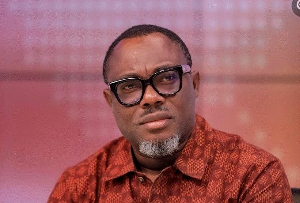 Ransford Gyampo has received a political appointment
Ransford Gyampo has received a political appointment
Political neutrality is often seen as a noble ideal, especially in governance and public discourse. It suggests the ability to remain fair, objective, and focused on national progress without being swayed by political allegiances.
But in reality, is it possible to stay truly neutral? Can a nation be built without individuals taking a stand? And what happens when politically neutral people take up government roles—do they remain outspoken, or does the system silence them?
These are important questions in Ghana’s political space, particularly in light of former President John Dramani Mahama’s appointment of key advocates, including Professor Ransford Gyampo.
Does political neutrality matter?
In theory, political neutrality is valuable because it allows for decisions that benefit the country rather than a political party. It promotes fairness, accountability, and national unity.
However, in a deeply polarized environment like Ghana’s, neutrality can be a double-edged sword. Some see it as a sign of wisdom and balance, while others view it as indecisiveness or even disguised partisanship.
In practical terms, remaining neutral in Ghana’s political landscape is tough. While neutrality can help bring different political sides together, it can also make a person seem detached from the real struggles of governance and development. The key is finding a balance—being fair and independent without being silent on crucial national issues.
How neutrality contributes to nation-building
For a country to grow, it needs voices that call for accountability and progress, not just those that take sides. Political neutrality can help in this process by fostering dialogue, ensuring policies are made in the best interest of the people, and bridging ideological gaps.
But neutrality does not mean passivity. If remaining neutral means ignoring corruption, bad governance, or injustice, then it becomes a problem rather than a solution.
Nation-building requires active engagement. Neutral figures must be willing to challenge systems and push for reforms, even if it means stepping on some toes.
Social commentators, civil society leaders, and political analysts play a crucial role in this. The question is—can they truly remain neutral while pushing for change?
Can social commentators really stay neutral?
Social commentators have a major influence on national conversations. In Ghana, many analysts and thought leaders aim to remain neutral, but they often face pressure to pick a side. The nature of politics makes it almost impossible to be completely neutral while advocating for change.
Take Professor Ransford Gyampo, for example. He has long been known for his fearless critiques of governance, regardless of which party is in power. But when he received an appointment under Mahama’s government, some wondered if he could maintain his objectivity.
Can an outspoken advocate remain just as vocal after joining the political system?
Does government appointment silence neutral voices?
One of the biggest risks of appointing politically neutral individuals to government positions is that they may lose their independent voice. Governance operates on collective decision-making, and dissent is not always welcomed.
Some appointees start out as vocal critics but gradually become less outspoken after stepping into government roles.
In Ghana, we have seen instances where individuals known for their neutrality and advocacy become quieter after taking government positions. While this doesn’t always mean they’ve been “compromised,” it raises concerns about whether the system itself discourages independent thinking.
The hope is that such appointees will use their positions to push for meaningful reforms rather than blend into the background.
How neutral individuals can stay true to their values in government
For politically neutral individuals who enter government, maintaining integrity and independence requires intentional effort. First, they must set personal principles and ethical boundaries before accepting any role.
By staying true to their core beliefs, they can resist the pressures of political influence.
Another important step is to stay connected to independent voices outside the government—civil society groups, journalists, and non-partisan organizations. Engaging with such groups ensures they remain accountable and don’t lose touch with the realities on the ground.
Additionally, they must actively push for institutional reforms that promote transparency and merit-based governance. By advocating for systems that outlive political regimes, they can leave a lasting impact rather than just holding a temporary position.
Expectations from Professor Ransford Gyampo’s appointment to the Ghana Shippers Authority
With his appointment to the Ghana Shippers Authority, many Ghanaians expect Professor Ransford Gyampo to bring his expertise in governance and policy analysis to the institution.
As someone known for his outspoken nature, citizens hope he will improve efficiency, uphold transparency, and ensure the Authority works for the benefit of the nation.
There is also an expectation that he will not become silent on critical national issues simply because he is now part of the system.
Many Ghanaians hope he will maintain the same energy he had before his appointment—holding leaders accountable, pushing for reforms, and being a voice of reason in governance.
Conclusion: finding the right balance
Political neutrality is valuable, but it must be active, not passive. Neutral individuals bring fairness and balance to governance, but they must also be ready to take a stand on important issues.
Social commentators, in particular, should focus on truth and accountability rather than trying to please all sides.
Appointing neutral individuals to government roles should be an opportunity to improve governance, not silence critical voices. Ghana’s progress depends on people who put national interests above party politics, ensuring that democracy thrives on accountability and open dialogue.
The challenge remains: Can those who claim neutrality maintain their voice when power calls? Only time will tell.